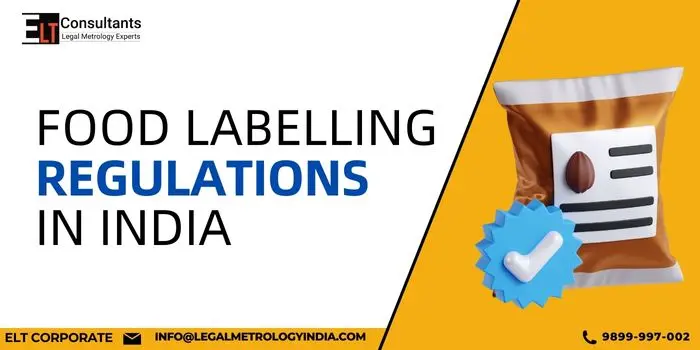Knowing food Labeling regulations in India can be overwhelming. As a manufacturer or retailer, you might face challenges in navigating these rules. Compliance is essential for consumer safety and trust. This article will easily break down the food Labeling regulations in India, and also help you to grasp the key requirements and ensure your product meets legal standards.
What Are Food Labeling Regulations in India?
Food labeling regulations in India are governed by the food safety and standards authority of India in short also known as a FSSAI. These regulations ensure that consumers receive accurate information about the food products. Labels must include critical details like ingredient, nutritional values, and allergens information. This transparency fosters information choices and enhances public health.
Why Are Food Labeling Regulations Important?
Food Labeling regulations are crucial for protecting consumers. Accurate labels help prevent health issues related to allergies, intolerance, or misinformation. Regulations also ensure fair competition among food procedures. Adhering to these rules builds consumer trust and brand loyalty.
Where Can You Find the Official Guidelines for Food Labeling?
The official guidelines for food product Labeling can be found on the FSSAI website. The FSSAI provides comprehensive resources, including the food safety and standards (Packaging and labeling regulations). These documents outline specific requirements and format for food labels.
Who Is Responsible for Ensuring Compliance with Food Labeling Regulations?
Manufacturers, importers, and retailers are responsible for ensuring compliance with food Labeling regulations. They must provide accurate information on labels. Regulatory authorities like the FSSAI monitor compliance and can impose penalties for violations.
When Should You Update Food Labels?
You should update food labels whenever there are changes in, hence, nutritional information, or packaging. Additionally, any new regulatory requirements or safety information should be reflected on labels promptly. Keeping labels current ensures ongoing compliance and consumer safety.
How Can You Ensure Your Food Labels Meet Regulatory Standards?
To ensure your food label meets regulatory standards, familiarize yourself with FSSAI guidelines. Conduct regular audits of your Labeling practices. Consulting with food safety experts can also provide valuable insights and help you stay compliant.
What Key Information Must Be Included in Food Labels?
Food labels in India must include several key elements. This includes product names, list of ingredients, net weight, nutritional information, and details about allergens. Additionally, labels should provide storage instruction and the manufacturer’s contact information.
Which Labels Are Exempt from Certain Regulations?
Certain labels may be exempt from specific regulations. For instance, small scale producers and cottage industries might have different labeling requirements. However, it is important to check the fssai guidelines to understand these exemptions clearly.
Why Is Nutritional Information Critical on Food Labels?
Nutritional information is critical because it helps consumers to make informed dietary choices. Labels should provide details about categories, fats, carbohydrates, protein, and vitamins. This information is vital for people managing their health or following specific diets.
How Can You Avoid Common Mistakes in Food Labeling?
To avoid common mistakes in food Labeling, double-check all information for accuracy. Ensure that ingredient lists are complete and match what’s in the product. Regular staff training involved in Labeling can also help maintain high standards.
Conclusion
Understanding food Labeling regulations in India is important for anyone involved in the food industry. These regulations protect consumers and promote fair practices among producers. By ensuring compliance, you not only adhere to the law but also foster trust with your consumer. This trust is very important for the long term success of your brand in the market.
Frequently Asked Questions (FAQs)
What Authority Governs Food Labeling Regulations in India?
The Food Safety and Standards Authority of India FSSAI governs food Labeling regulation.
Why is Accurate Food Labeling Important?
Accurate Labeling protects consumers from health risks and ensures informed choices.
What Information is Mandatory on Food Labels?
Mandatory information includes product name, ingredients, nutritional values, and allergen warnings.
How Can I Find the Official Food Labeling Guidelines?
Official guidelines are available on the FSSAI website.
Are There Different Regulations For Small Producers?
Yes, small-scale producers may have different Labeling requirements, but they must still comply with FSSAI regulations.
When Should I Update My Food Labels?
Update labels when there are changes in ingredients, nutritional contents, or regulatory requirements.
What are the Penalties for Non-Compliance with Labeling Regulations?
Penalties can include fines, product recalls, or other legal actions.
How can I Ensure My Food Labels are Compliant?
Familiarize yourself with FSSAI guidelines and conduct regular audits of your Labeling practices.
Is Nutritional Information Required on All Food Labels?
Yes, nutritional information is required on most food labels, but there may be exemptions for certain products.
What Role Do Allergens Play in Food Labeling?
Allergen information is crucial for consumer safety and must be clearly stated on labels.
How Can I Avoid Common Labeling Mistakes?
Double-check all the label information for accuracy and give staff training to avoid common Labeling mistakes.







